Oregon’s first ever electric bike rebate bill received a hearing at the Oregon Legislature today. Supporters of the bill were well-prepared and it was an almost entirely positive affair with no major speed bumps. There was no vote (that will hopefully come later), but it was our first chance to gauge the temperature of lawmakers and see how supporters frame the bill. It was also the first chance for any detractors to emerge from the woodwork.
HB 2571 would give people up to $1,700 cash back on the purchase of an e-bike with a goal of getting more Oregonians to consider bikes as their next EV. Oregon currently has generous purchase incentives for electric cars, but does nothing for their much smaller, safer, cheaper, and more eco-friendly, two-wheeled brethren.
The bill was heard in the House Committee on Climate, Energy, and the Environment. Prior to the meeting, well over 80 people submitted written testimony in support of the bill. Only one of them opposed it — and it was only partial opposition. The person said they support rebates for the purchase of e-bikes, but only certain types. “I do have a problem with my tax dollars going to purchase a mountain bike that somebody uses for their weekend hobby. That only benefits the individual and is not a valid use of taxes,” the person wrote.
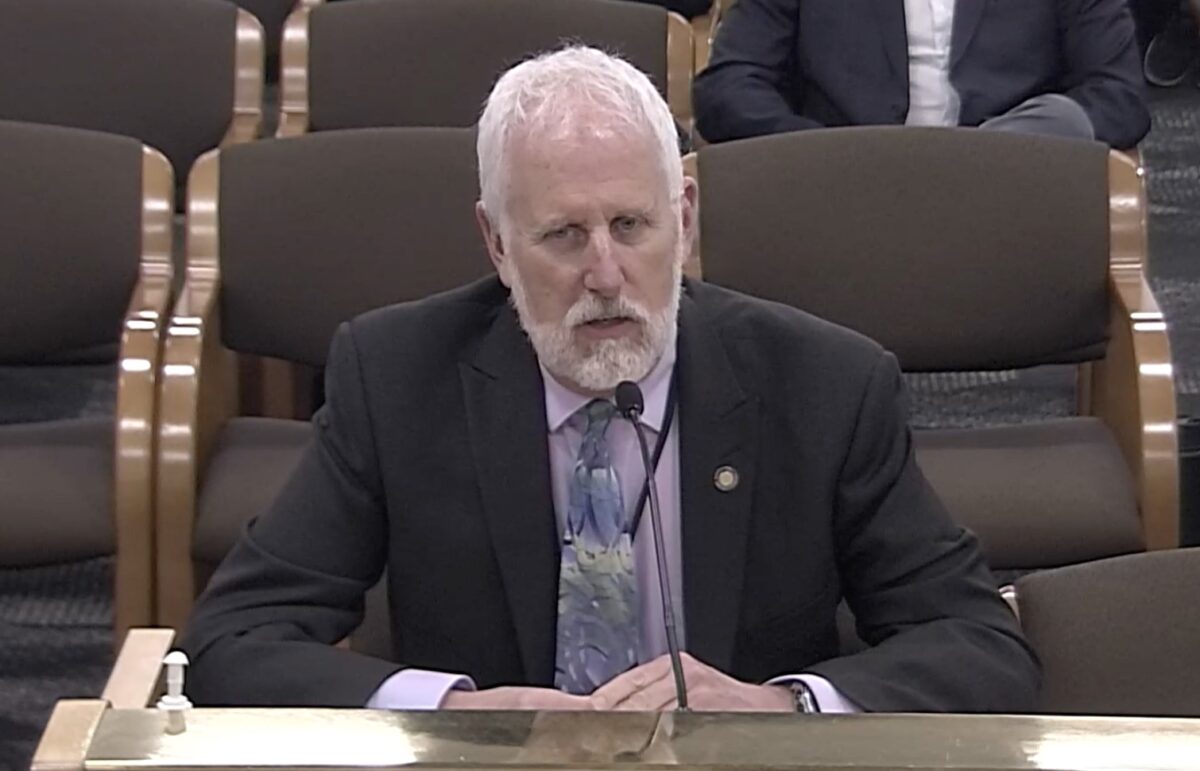
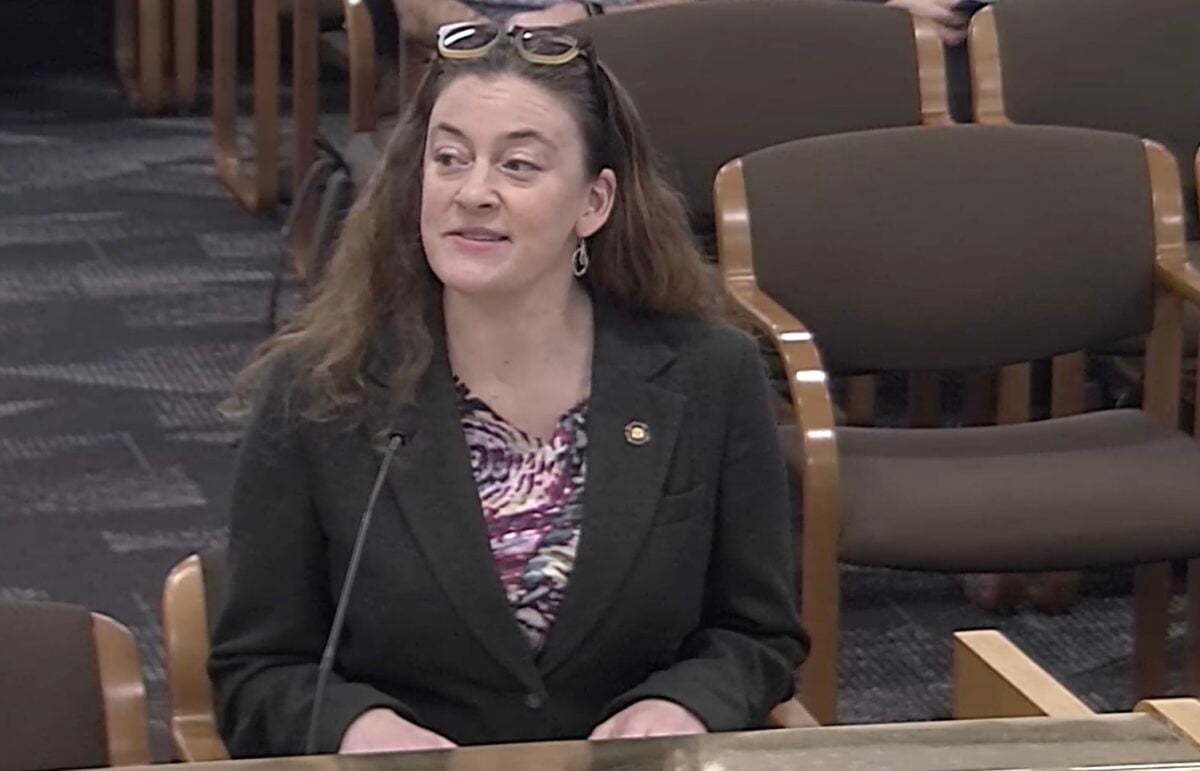
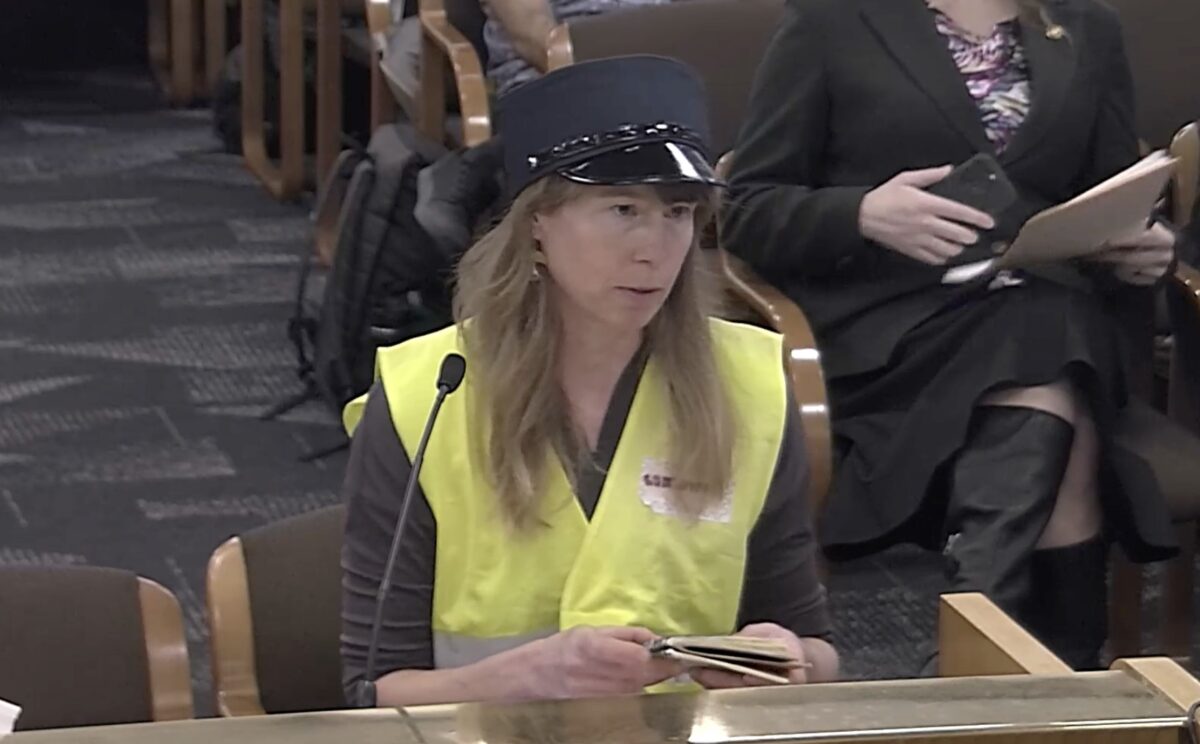

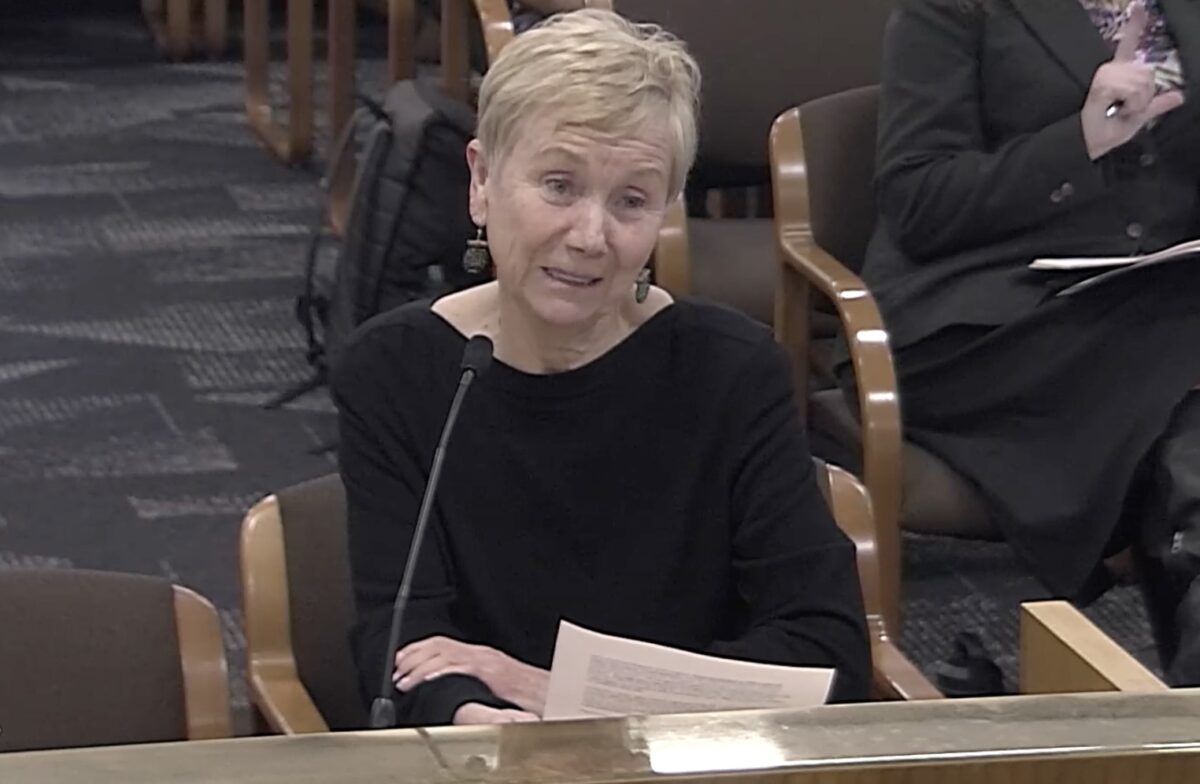
Portland nonprofits The Street Trust and BikeLoud PDX have been whipping up support of the bill among their members. A new group, E-bike Oregon, has also emerged. They have a website and are working to get bike shops and organizations statewide to formally endorse the bill.
The bill’s chief sponsors are Democrat House reps Dacia Grayber and Mark Gamba. (Rep. Khanh Pham is a co-sponsor, and she is also a member the committee where the bill was heard today, but stayed quiet throughout.)
Rep. Grayber introduced the bill by reminding committee members of Oregon’s goal of phasing out gas-powered vehicles by 2035. “In our efforts to make that a reality we need to ensure a wide range of electric vehicle alternatives are accessible to Oregonians in both urban and rural communities. E-bikes have emerged as one of — if not the — most popular alternatives.” “And I’m just going to put it on the record,” she continued. “It’s a lot of fun as well.”
Bill co-sponsor Rep. Mark Gamba, a former mayor of Milwaukie who knows a lot about e-bikes as a regular rider himself, extolled their virtues, saying they are “extraordinarily different” than bicycles and make longer and more difficult bike commutes possible while allowing you to arrive at your destination, “a lot less sweaty and smelly than you would otherwise.” Gamba also said e-bikes make transportation cheaper for people with less money and they can relieve freeway congestion in busy metro areas.
Rep. Virgle Osborne, a Republican from Roseburg, asked why the bill offers a rebate instead of a tax credit. Grayber and Gamba answered by saying research shows cash rebates work best to spur sales and reach a wide variety of people — and that many Oregonians don’t have enough money in the bank spend $3,500 on an e-bike. “But if you walk in [to a shop], and it’s going to be half [the price] of what it was going to be otherwise, that’s reachable for folks,” Gamba answered.
After testimony from Portland State University e-bike expert John MacArthur, Rep. Bobby Levy, a Republican who represents the area around the town of Echo in eastern Oregon, said she lives on a gravel road. “How do these [bikes] work on dirt and gravel?” she asked. MacArthur channeled his inner-bike shop salesman and replied, “There’s lots of different types of e-bikes… So it’s about finding the right e-bike for you.”
Megan Ramey, a youth and family cycling advocate from Hood River, testified in her Bike Train Conductor costume. She told stories about people she knows whose lives have been changed for the better because of their e-bikes. “E bikes are a great way to build resiliency and preparedness in communities,” Ramey said.
Nick Wood with Portland-based e-bike company VVolt, told lawmakers he thinks the incentive will have a “viral effect” with many people currently on the fence due to cost concerns deciding to to buy an e-bike and “make the leap into the bike lane.” Wood also said he believes hundreds of small business across Oregon will benefit from the additional sales spurred by the rebate.
National nonprofit industry group People for Bikes Deputy Director of State and Local Policy Ashley Seaward also testified. She said the bill checks all the right boxes, but proposed two amendments that would make it even better. Seaward said her group thinks it’s a bad idea to define “electric cargo bicycle” in statute (which the bill does). “The types of electric bicycles are usually detailed once the [state administrators] begin working on the program. And this allows for more flexibility in the planning process… You wouldn’t define an electric minivan within state statute for an electric vehicle rebate program so you wouldn’t do the same for an electric bicycle incentive program.”
Seaward also thinks the bill would be stronger if it had an amendment to provide additional incentives for people with lower incomes (which came as no surprise to bill sponsor Rep. Grayber, who said at the outset of the hearing she would welcome amendments that help the rebate program, “serve the broadest range of Oregonians.”)
The only substantive critique of the bill from the public came from Jody Wiser, a lobbyist with Tax Fairness Oregon. She said her group feels the rebate is way too high, especially compared to what Oregon offers for e-cars. Here’s her argument:
“My electric car subsidies from the state were about 15%. If you buy a $26,000 electric motorcycle you get $750. [With the e-bike rebate] If you buy a $900 bike and a bunch of equipment, you can walk out of the store with $1,400 worth of equipment costing you $200. That’s just way out of line with how we are subsidizing other electric modes of transportation.”
I’m not sure where you would find a $900 e-bike, but she made her point. Wiser also thinks the bill should have an Oregon residency requirement so that people who live out of the state aren’t able to benefit from our taxes.
Overall impression it felt like a very strong first outing for HB 2571. There were so major objections from lawmakers, bill sponsors received excellent advice on how to make it even better with various amendments, and thanks to solid testimony there was some solid learning that took place. From here, the bill could return to this committee for a second reading to consider amendments.
Stay tuned for further developments on this and other bills. See our 2023 legislative guide to learn about the 23 bills we’re currently tracking.



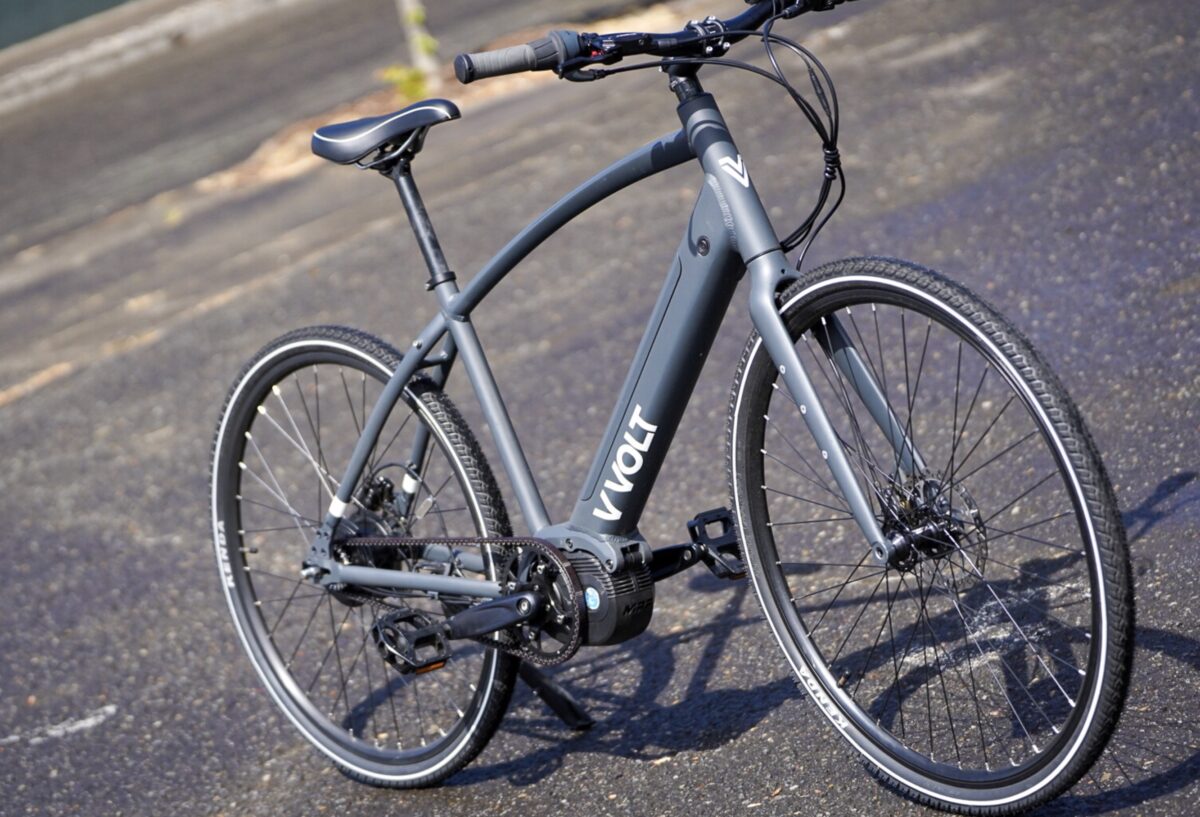
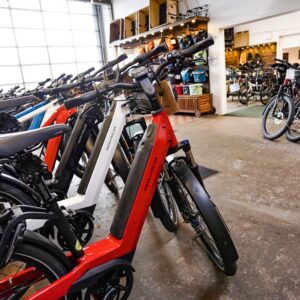
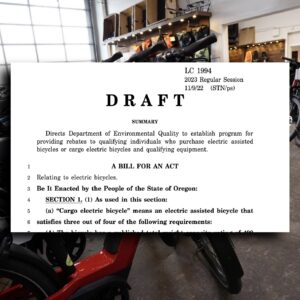
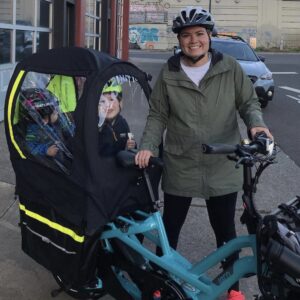
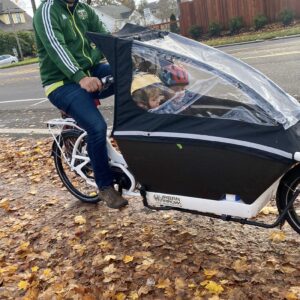
Thanks for reading.
BikePortland has served this community with independent community journalism since 2005. We rely on subscriptions from readers like you to survive. Your financial support is vital in keeping this valuable resource alive and well.
Please subscribe today to strengthen and expand our work.
This is great news! E-bikes could make a huge improvement to our roads and are a step in the right direction towards reducing our region’s climate impacts. Is there any talk about corresponding support for our transportation system? It seems like we are behind the curve in terms of modifying/upgrading our infrastructure and regulations to handle an influx of vehicles that are often larger and faster than bikes. It sounds like we have a lot of legislators who are well-intentioned and well-informed so this might be a good time to have a conversation about modifying and expanding infrastructure and discussing guidelines for road use.
Sounds like good news to me. I had a couple thoughts while reading the article.
First, does it include other e-mobility devices, like scooters or electric trikes? I have a friend that can’t bike due to a disability, but they bought a light electric scooter that they use for trips under 3 miles in their neighborhood. They really enjoy it and they’re really proud of how much car travel they’ve been able to replace.
Second, if this does pass, there needs to be a push for educating these new cyclists piloting 2-300 pounds of meat and metal. Both for their own safety and the safety of other bikers and walkers. Many people haven’t been on a bike since they were kids. I think bike shops could take the lead on this, by hooking up proud new ebike owners with workshops and resources for how to handle their bikes, be situationally aware, and ride safely when sharing the street with pedestrians, other bikers, and (unfortunately) cars.
If this bill passes – along with some serious investments in making streets safer and friendlier to bike on – Oregon could really lead the way in cutting transportation emissions and undoing decades of auto-dependency.
Under the current draft of the bill, there are two separate rebates, one for “cargo electric bicycles”, which tops out at $1,700, and one for “electric assisted bicycles”, which tops out at $1,200. The bill relies on the definition of electric assisted bicycle as given in ORS 801.258 for both rebates:
So yes, it looks like some other e-mobility devices, like tricycles, would qualify. But a stand-up scooter would not, as it doesn’t have a saddle or a seat.
Looks like only Type 1 eBikes are supported, but not Type 2 or 3.
David, those classifications don’t exist under Oregon law. But if they did, I do not see how “type 2” ebikes would be excluded.
My main gripe is that it appears the rebate does not apply to kits or retrofits. So, hurray for local retailers I guess.
A retrofitted conventional bike will be easier to service when the batteries need replacing. Five years is a good outcome for battery life so my 20 year old bike would be on its 4th or 5th round. High end e-bikes often have the battery stuffed in the frame, and at least one “industry standard” mid drive has moved on to a new motor layout that isn’t reverse compatible. I believe that e-bikes will get ridden. The higher price point could mean that buyers are more committed, but some may be in for a shock when they need service.
I think that 5(a) and 5(b) are potentially in conflict. 1000 watts is an increasingly common motor size, and if the controller is a type that makes that power available it’s very easy to go over 20 mph. The market has bypassed this draft of the bill. A restrictive controller can be replaced, or bypassed with a throttle, and many controllers allow throttle input.
How about a $600 state subsidy to buy a non-electric bike? Doesn’t that sound equally fair? Wouldn’t that really help the environment?
And how about that $15 state bike fee, to get our skin in the game?
The $600 subsidy could also go to locally made bicycles which we have many of and they are not much more expensive than Taiwan made Ebikes.
We could get people on real bicycles made by local craftsman that would last years and years and retain value.
It’s a complete joke. EV car subsidies are maybe 10-15% of purchase, paying half an e-bike cost is ridiculous. Most will be broke down in the back of garages in about 2 years.
I’m not sure I would devalue Taiwan made bikes in such a way. They’re the capital of manufacturing with some 85% of frames being made there. Rule of thumb years ago was that any Trek, Specialized, you name it under $3,000 was made in overseas and almost certainly in Taiwan.
As for the percentages, I can see that from that perspective it’s unfair. However, if we subsidize an electric car at 10% and net say $5,000, the same amount of money would subsidize about 8 bikes.
To me the goal of this legislation is to get more people to take more trips in lower impact vehicles. If imagine 8 households with ebikes would replace more than one household with an electric car since most people would use it to replace their commute, though they might need to keep their car for the sake of kids.
Finally, I do wish there were a way to fairly test for usage. Day if you take the subsidy you need to replace x number of trips or commutes with the ebike. People buying them as yours is a valid concern.
I love that our state charges $15 for a new bike but will give you hundreds because you might take an e-bike for errands instead of a car…or Trimet.
Trolling aside, it is ridiculous to help pay for people to take their e-bikes to mountain bike on Sandy Ridge.
Well I’ve said it myself but my birthday wish is, people stop using that “skin…” bit. We’re already there in ways that MV operators will never understand. I may have filtered out a couple pounds of diesel exhaust with my lungs but who’s counting?
The $15 is a token and kind of an insult. Since I already own five rideable bikes the state of Oregon will never show a nickel of bike tax from me. Carhead legislators back to the drawing board.
Just wait until she learns about gravel-specific frame geometry.
I thought eastern Oregon was going to secede and join Idaho? This shouldn’t be a concern to her.
Wiser’s objection makes sense only if you assume all electric vehicles are equivalent in terms of their social, economic, and environmental benefits, which is obviously not the case. E-bikes have the potential to revolutionize urban mobility and drastically decrease people’s dependence on cars, which are actually, currently, the major drain on public finances.
I’m also fine with with rebates for “hobby” e-bikes like electric mountain bikes (and not just because I’d like one myself). Even recreational bikes have utility for running daily errands. Getting more people on bikes will help normalize bicycling in general, which is good. And of course recreational cycling has health benefits, which reduces the amount of money the state spends on medical care. Compared to what we already pay for deadly, polluting, and community-destroying highways, the proposed e-bike rebate is a true bargain for all concerned.
Perhaps this is wishful thinking…
“Perhaps this is wishful thinking…”
You think?
This is so funny, E-bikes have been around for years now, They have not made a dent in the transportation realm.
Bike ride share is LESS than before the E-bike “revolution”?
Beyond delusional……
Apparently I wasn’t clear on what I meant by “potential”. I do not think the mere existence of e-bikes will solve all our transportation problems. But since I started using one I can see firsthand e-bikes’ ability to drastically expand car-free mobility. The fact that most trips are still by car is exactly why we need to extend these options to more people.
You could say the same thing about electric cars, except e-bikes are actually outselling electric cars 2 to 1.
Cars are “the” major drain on public finances?
In terms of return on investment, yes, I’d argue that car-dependent infrastructure is the worst category. (This includes suburban sprawl in general.) Might be a toss-up between cars and cops.
So is the math behind this just dividing your irrational emotional response to there being people who drive divided by the number paid for these goods/services, you conclude the ROI is awful? Or, there are people in the suburbs who have a quality of life so superior to what Portland offers today, it must be getting subsidized by someone who walks everywhere and lives in a micro-apartment in NW Portland?
Emotions have nothing to do with it. Poor urban dwellers routinely subsidize wealthy suburbanites: https://grist.org/cities/starving-the-cities-to-feed-the-suburbs/
I believe that I saw a foldable e-bike for $7-800 at Costco.
Then Walmart and Target aren’t far behind – they already have disc brake mountain bikes, the kind where the front disc unscrews if you brake too hard, plus cranks that reverse the threading for the pedals (in the opposite direction of normal cranks.) My guess they’ll have a $469.99 ebike by Christmas that’s just as unrepairable as their current bikes, which account for over 80% of all bikes sold in the USA.
Given the miniscule amount of funding ($6 million) and the fact that economically-comfortable people will be far better informed about this rebate, I expect the vast majority of this funding would go to well off people who could easily afford an e-bike. I very much hope an amendment carves out a large chunk of funding for exclusive use by low-income people. I personally would support something like $5 million for low-income people and $1 million for high-income people, for example.
I am with you but I believe that people with a high income (say 150K and above) should not get a rebate for an e-bike. 1 I think they can afford an e-bike without the rebate. 2 I don’t believe that they would actually replace a car with an e-bike. 3 there’s a higher chance that they already have an EV in their garage vs someone with a lower income.
It’s totally possible to get a solid town bike for five or six hundred, which makes $3000 for an e-bike seem expensive. However that’s not a lot of money compared to a car.
At that price point a used car will need a thousand or more in repairs and then it will keep costing $500 a year in service, plus gas and insurance, not to mention $1150 when the catalytic converter is stolen.
$3000 is cheap for a person who can afford to live in Portland. You can also finance the purchase and pay it off with what you save on gas. I’d rather see legislators do the heavy lifting on some other bike related bill.
For example: Fix infrastructure gaps so the bike lane never ends. Provide secure public bike parking. Mandate designated pick-and-drop zones for all kinds of e-commerce vehicles so they aren’t such a nuisance to other road users. Stuff like that.
when do they vote on this? What is the next step?
While I would rather see more e-vehicles than gas vehicles, and more bikes than cars, if the goal is simply to reduce greenhouse gas emissions and congestion, I think that money might be better spent on making biking / public transit more pleasant, and driving less pleasant. I.e. public infrastructure for everyone, instead of subsidizing expensive private property. There’s plenty of existing bikes out there that serve perfectly well for transport, but many routes are unsafe / unpleasant. Poor people can get a bike off craigslist or wherever for like $20, and will likely never see any of these proposed funds.
I think people would prefer to take the MAX to Beaverton over biking (in the absence of a tunnel for bikes through the west hills) if we would just increase the MAX capacity / frequency and made it more pleasant for everyone to ride, instead of just the last resort of people who have no other option.
I think we can and should do both Leif. Oregon is giving away millions to subsidize electric cars, the least we can do is create some equality with subsidies to other electric vehicles like bicycles.